Fall Seminars
The fall seminars are based on global leadership and policy, and are designed exclusively for Global Fellows in Washington, D.C. participants. If you are interested in domestic policy you may go to our Federal Fellows branch, which has terrific options, including Homeland Security Policy! If you are interested in state and local public service, check out our Maryland Fellows branch, which has more great concentrations. Note: All FGSM courses are cross-listed with Honors courses.
Students in the program choose one of the following courses for their fall Global Fellows seminar (3 credits):
Science Diplomacy: Foreign Policy and Science,
Technology, and Innovation (FGSM370/HNUH378T)
Wednesday, 5:30 p.m. to 8:30 p.m.
Course Description: This course will explore the nexus of foreign policy/diplomacy with specific science and technology sectors including energy and climate change, health, infrastructure, and economic development/poverty reduction. Solutions to today’s global challenges will rely on developments in science and technology. The United States and many other countries view science and technology as the means to achieve economic goals and to ensure the well-being of their populations. Developing countries are investing heavily in their science and technology infrastructure. International cooperation in Science and technology is increasingly important and by some accounts, a predictor of the most influential results. Countries engaged in international Science and Technology cooperation often rely on negotiations to determine the processes, responsibilities and benefits for such collaborations. As a result, the linkages between foreign policy and science and technology have never been stronger. Students, through expert speakers, presentations, readings, and negotiation exercises, will explore the critical roles scientific knowledge and technological innovation play in the formation and implementation of foreign policy issues. A strong focus of the course is the development of memo writing, oral presentation, and negotiation skills, including two highly-immersive negotiation simulations.
Instructor Information: 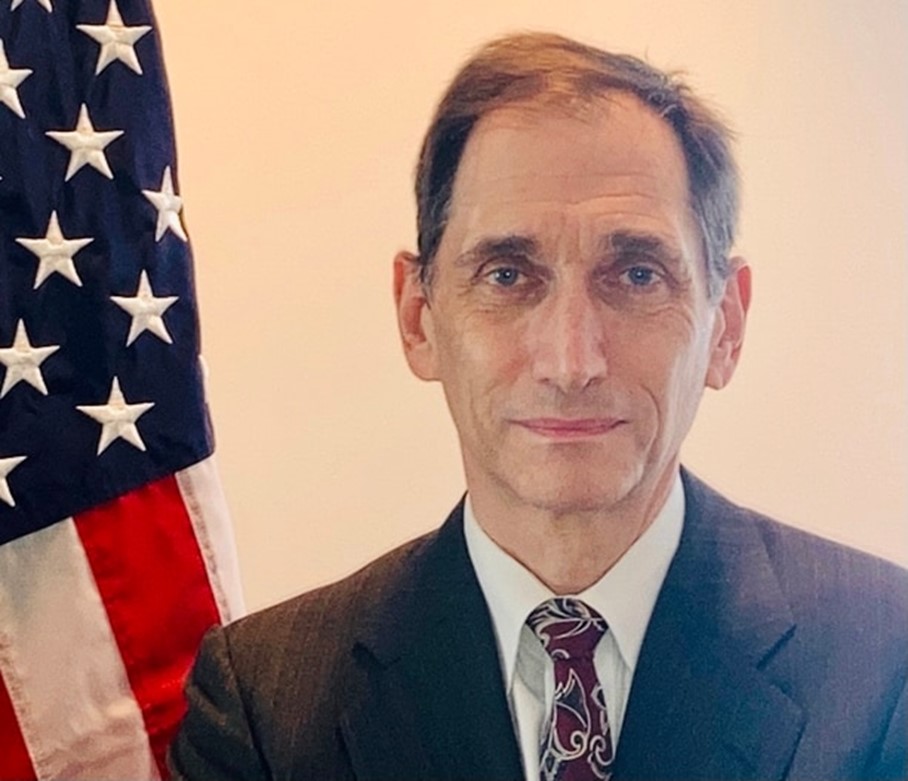 Dr. Jonathan Margolis, a career member of the Senior Executive Service, serves as the Deputy Assistant Secretary for Science, Space and Health in the Department of State’s Bureau of Oceans and International Environmental and Scientific Affairs. In this position, he is responsible for policies and programs in the areas of International Science & Technology, Space, and International Health and Biodefense. From 2007-2011, Dr. Margolis served as Deputy Assistant Secretary for Global Communications in the Bureau of International Information Programs. Dr. Margolis oversaw the Bureau’s internet, video and print products, including social media. From 2006-2007, Dr. Margolis served as the Senior Coordinator for Global and Functional Issues in the Office of the Director of Foreign Assistance, where he oversaw reform efforts to ensure effective use of foreign assistance resources. From 1997-2006, Dr. Margolis served as the Department's Special Representative for Sustainable Development and as the Director of the Office of Policy Coordination and Initiatives in the Bureau of Oceans and International Environmental and Scientific Affairs. As Special Representative, he headed the U.S. Delegation to the UN Commission on Sustainable Development. Dr. Margolis joined the State Department in 1991 as a American Association for Advancement of Science Diplomacy Fellow and was integrally involved in environment, water, and economic issues and programs, as part of the multilateral track of the Middle East peace process through 1996. He has also served as an Adjunct Professor at American University and the Foreign Service Institute, where he conducted courses on environmental policy, negotiations, and international organizations. Dr. Margolis has a Ph.D. from Harvard University in psychology, focusing on negotiation and conflict resolution. He holds a Master's Degree from the Fletcher School of International Law and Diplomacy. His undergraduate degree is in Fine Arts from Harvard College.
Dr. Jonathan Margolis, a career member of the Senior Executive Service, serves as the Deputy Assistant Secretary for Science, Space and Health in the Department of State’s Bureau of Oceans and International Environmental and Scientific Affairs. In this position, he is responsible for policies and programs in the areas of International Science & Technology, Space, and International Health and Biodefense. From 2007-2011, Dr. Margolis served as Deputy Assistant Secretary for Global Communications in the Bureau of International Information Programs. Dr. Margolis oversaw the Bureau’s internet, video and print products, including social media. From 2006-2007, Dr. Margolis served as the Senior Coordinator for Global and Functional Issues in the Office of the Director of Foreign Assistance, where he oversaw reform efforts to ensure effective use of foreign assistance resources. From 1997-2006, Dr. Margolis served as the Department's Special Representative for Sustainable Development and as the Director of the Office of Policy Coordination and Initiatives in the Bureau of Oceans and International Environmental and Scientific Affairs. As Special Representative, he headed the U.S. Delegation to the UN Commission on Sustainable Development. Dr. Margolis joined the State Department in 1991 as a American Association for Advancement of Science Diplomacy Fellow and was integrally involved in environment, water, and economic issues and programs, as part of the multilateral track of the Middle East peace process through 1996. He has also served as an Adjunct Professor at American University and the Foreign Service Institute, where he conducted courses on environmental policy, negotiations, and international organizations. Dr. Margolis has a Ph.D. from Harvard University in psychology, focusing on negotiation and conflict resolution. He holds a Master's Degree from the Fletcher School of International Law and Diplomacy. His undergraduate degree is in Fine Arts from Harvard College.
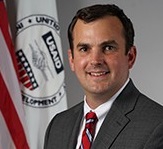 Dr. Jeffrey Haeni is the Acting Director for USAID’s Center for Environment, Energy and Infrastructure in the Bureau for Development, Democracy, and Innovation. The Center provides technical leadership for USAID’s biodiversity, climate change, energy, ocean plastics, land and resource governance, sustainable landscape, and infrastructure programming. Previously, Dr. Haeni served as USAID’s Acting Deputy Assistant Administrator in the Bureau for Economic Growth, Education and Environment (E3) and as the Director for the Office of Energy and Infrastructure, supporting the Agency’s multi-billion dollar annual infrastructure and energy portfolio. He has 15 years of experience working on energy sector development in more than 18 countries, and previously served as Chief of USAID’s Energy Division where he supported the design, implementation, and evaluation of energy projects. Before joining USAID, Dr. Haeni was an energy specialist on the Economic Policy Staff in the Bureau for African Affairs at the U.S. Department of State and served as an energy advisor to former Representative Rush Holt (NJ-12) in the U.S. House of Representatives. He has a Ph.D. in Materials Science and Engineering from the Pennsylvania State University and a bachelor’s degree in Physics from Colgate University.
Dr. Jeffrey Haeni is the Acting Director for USAID’s Center for Environment, Energy and Infrastructure in the Bureau for Development, Democracy, and Innovation. The Center provides technical leadership for USAID’s biodiversity, climate change, energy, ocean plastics, land and resource governance, sustainable landscape, and infrastructure programming. Previously, Dr. Haeni served as USAID’s Acting Deputy Assistant Administrator in the Bureau for Economic Growth, Education and Environment (E3) and as the Director for the Office of Energy and Infrastructure, supporting the Agency’s multi-billion dollar annual infrastructure and energy portfolio. He has 15 years of experience working on energy sector development in more than 18 countries, and previously served as Chief of USAID’s Energy Division where he supported the design, implementation, and evaluation of energy projects. Before joining USAID, Dr. Haeni was an energy specialist on the Economic Policy Staff in the Bureau for African Affairs at the U.S. Department of State and served as an energy advisor to former Representative Rush Holt (NJ-12) in the U.S. House of Representatives. He has a Ph.D. in Materials Science and Engineering from the Pennsylvania State University and a bachelor’s degree in Physics from Colgate University.
US Intelligence and Policymaking (FGSM355/HNUH359T)
Thursday, 7:00 p.m. to 10:00 p.m.
Course Description: This course will examine the role of intelligence in supporting U.S. security strategy and policy. Students will learn how the U.S. Intelligence Community (IC) is structured and organized, and will explore how intelligence is deployed to support the warfighter, diplomats, and senior-level decisionmakers. The course emphasizes the development of critical thinking and analytic skills, as well as professional writing and oral presentation abilities that are necessary for successful work in national security organizations. The course will feature guest lecturers from real-world practitioners to supplement course readings.
Instructor Information:
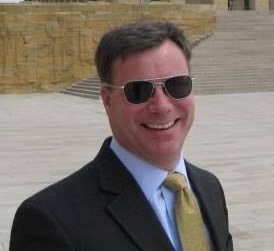 William Usher is the Senior Director for Intelligence at the Special Competitive Studies Project, a non-partisan, non-profit organization led by Eric Schmidt that is focused on strengthening America’s competitiveness in artificial intelligence and other advanced technologies. He retired from the Central Intelligence Agency in 2023 where he served as an executive manager and was a member of the Senior Intelligence Service. During his 32-year career at CIA, held a variety of leadership assignments overseeing CIA's work on the Middle East, Eurasia, and Asia, including two overseas tours. He has briefed the US President, multiple Cabinet officials, members of Congress, and foreign heads of state, and he is a recipient of the CIA’s Distinguished Career Intelligence Medal. Mr. Usher is a sought after expert on the Near East and the US Intelligence Community’s use of AI who has been quoted in the New York Times, Bloomberg News, and has appeared on multiple podcasts. Mr. Usher received his B.A. from Duke University and his M.S. in National Security Studies (with honors) from the National War College. He is married to Adrienne Hallett Usher and proud father of an eight-year old boy, Reed.
William Usher is the Senior Director for Intelligence at the Special Competitive Studies Project, a non-partisan, non-profit organization led by Eric Schmidt that is focused on strengthening America’s competitiveness in artificial intelligence and other advanced technologies. He retired from the Central Intelligence Agency in 2023 where he served as an executive manager and was a member of the Senior Intelligence Service. During his 32-year career at CIA, held a variety of leadership assignments overseeing CIA's work on the Middle East, Eurasia, and Asia, including two overseas tours. He has briefed the US President, multiple Cabinet officials, members of Congress, and foreign heads of state, and he is a recipient of the CIA’s Distinguished Career Intelligence Medal. Mr. Usher is a sought after expert on the Near East and the US Intelligence Community’s use of AI who has been quoted in the New York Times, Bloomberg News, and has appeared on multiple podcasts. Mr. Usher received his B.A. from Duke University and his M.S. in National Security Studies (with honors) from the National War College. He is married to Adrienne Hallett Usher and proud father of an eight-year old boy, Reed.
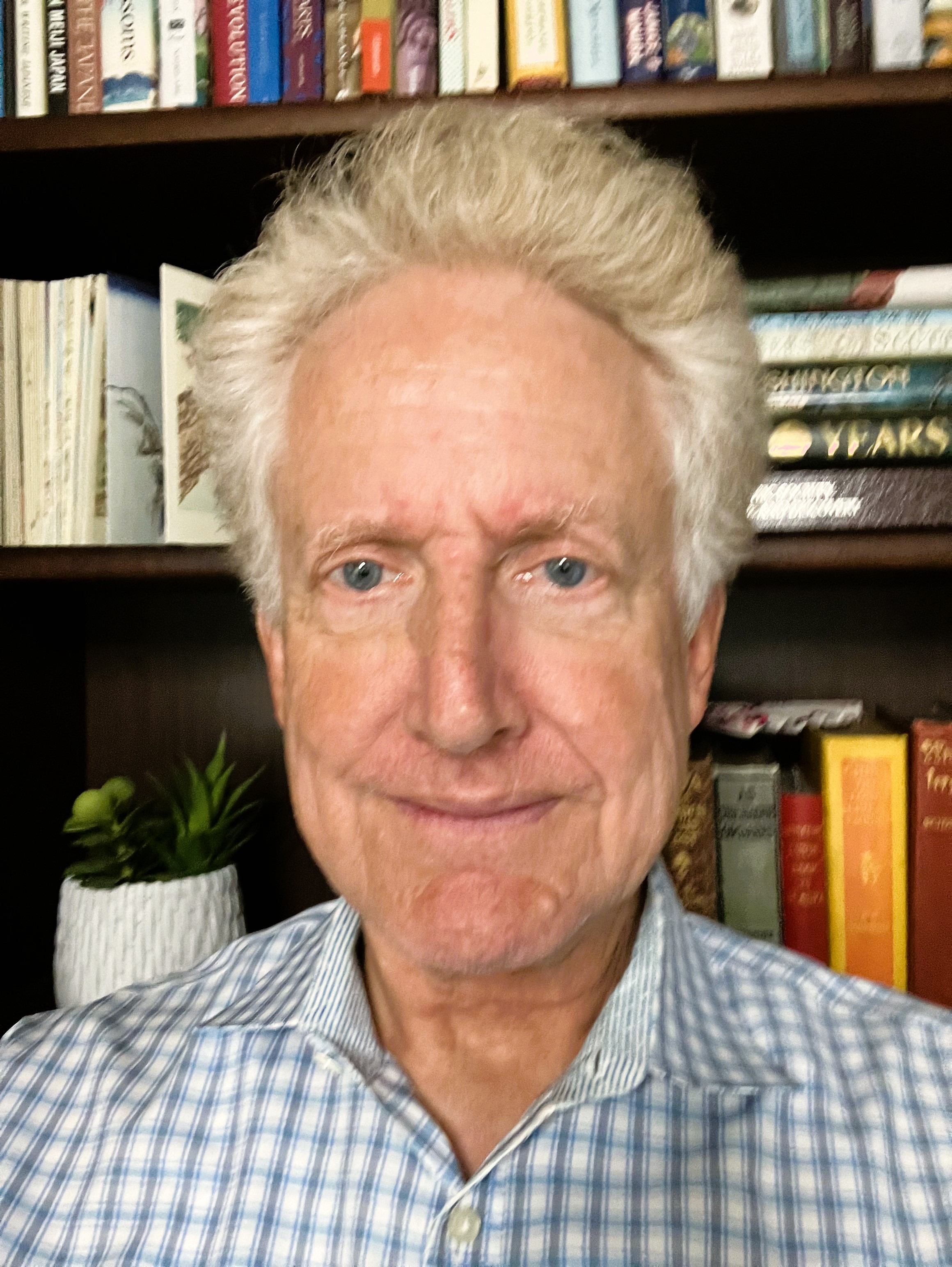 A native Washingtonian, Dr. Bruce Parsell retired as a senior intelligence officer after 30 years as an
analytic leader and manager at the Central Intelligence Agency and National Intelligence Council. While
at the CIA, he helped conceptualize and stand up the Strategic Insight Department, which produces
cutting-edge strategic and alternative analysis on the nation’s top security issues. As a member of CIA’s
Current Production and Analytic Support Staff, he managed the editing and content selection of daily
intelligence products for senior White House staff and Intelligence Community officials. Additionally, he
authored and supervised sophisticated, policy-relevant analytic assessments on a wide range of critical
topics, including economic, leadership, political, and security dynamics in the Middle East and East Asia,
and on terrorism and sensitive collection programs.
Dr. Parsell consistently delivered highly commended analysis under intense time pressure across a host
of the nation’s highest-priority security issues. He is known for his outstanding writing, editing, and
verbal communication skills and for his ability to teach and develop those skills in others.
Since he retired, Dr. Parsell has continued to work part time at the CIA, evaluating finished analytic
reports for quality. He also teaches writing and editing courses for members of the intelligence
community and for private sector clients. Dr. Parsell holds a BA in economics from the University of
Maryland and a PhD in Economics from the University of Melbourne, Australia.
A native Washingtonian, Dr. Bruce Parsell retired as a senior intelligence officer after 30 years as an
analytic leader and manager at the Central Intelligence Agency and National Intelligence Council. While
at the CIA, he helped conceptualize and stand up the Strategic Insight Department, which produces
cutting-edge strategic and alternative analysis on the nation’s top security issues. As a member of CIA’s
Current Production and Analytic Support Staff, he managed the editing and content selection of daily
intelligence products for senior White House staff and Intelligence Community officials. Additionally, he
authored and supervised sophisticated, policy-relevant analytic assessments on a wide range of critical
topics, including economic, leadership, political, and security dynamics in the Middle East and East Asia,
and on terrorism and sensitive collection programs.
Dr. Parsell consistently delivered highly commended analysis under intense time pressure across a host
of the nation’s highest-priority security issues. He is known for his outstanding writing, editing, and
verbal communication skills and for his ability to teach and develop those skills in others.
Since he retired, Dr. Parsell has continued to work part time at the CIA, evaluating finished analytic
reports for quality. He also teaches writing and editing courses for members of the intelligence
community and for private sector clients. Dr. Parsell holds a BA in economics from the University of
Maryland and a PhD in Economics from the University of Melbourne, Australia.
U.S. Diplomacy (FGSM360/HNUH368T)
Tuesday, 7:00 p.m. to 10:00 p.m.
Course Description: This course will consider questions and dilemmas in the practice of contemporary diplomacy and statecraft from the perspective of the United States. It will explore various tools available to the United States as it develops and implements diplomacy and foreign policy strategies, such as public diplomacy and soft power; bilateral and multilateral diplomacy; trade agreements; foreign assistance and other economic tools; and other capabilities. This course will emphasize the role of diplomacy in addressing foreign policy challenges. The course will make use of such materials as contemporary foreign policy documents, case studies, simulations, and guest lecturers drawn from Washington's foreign policymaking, statecraft, think tank, and NGO communities.
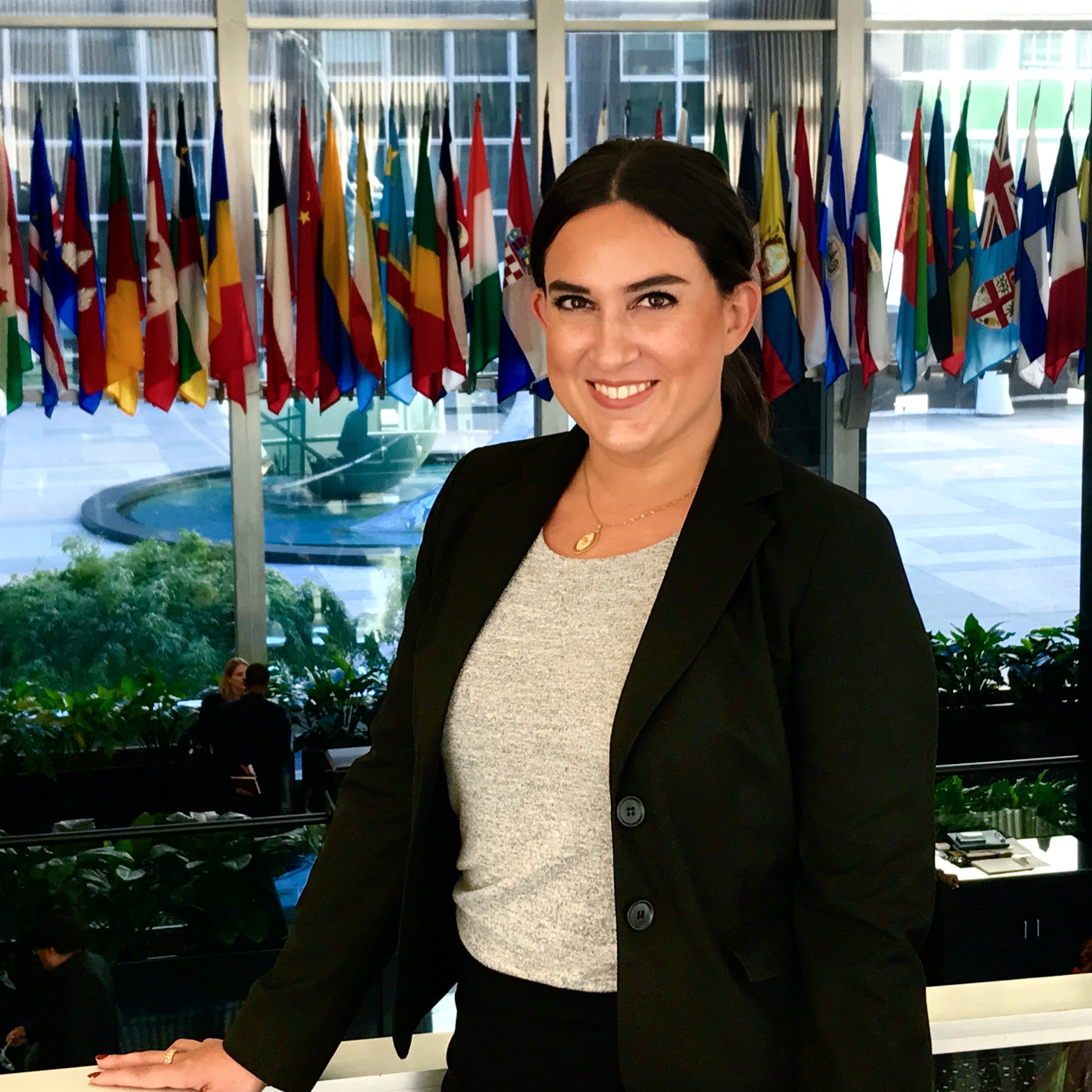 Nadia Farra is the Chief of Staff for the Special Envoy for Critical and Emerging Technology at the U.S. Department of State. Before this assignment, Nadia served as the Special Assistant to Deputy Secretary of State Wendy Sherman covering the Middle East and North Africa, Counterterrorism, and Cyber and Digital policy. Nadia served as the Senior Syria Desk Officer from 2015 until 2021 leading a team of six and advising U.S. government leaders on engagement with the U.N., political process, nonproliferation, and sanctions. Nadia entered the civil service in 2011 as a Presidential Management Fellow at USAID where she staffed former Administrator Raj Shah before serving on the Yemen Desk. Nadia has a Master's degree in Public Administration with a focus on International Development from the Wagner School of Public Service at New York University and a Bachelor's degree in International Affairs with a Minor in Arabic from the University of Georgia. She is President of the Board of Arab Americans in Federal Affairs Agencies – an interagency government employee organization.
Nadia Farra is the Chief of Staff for the Special Envoy for Critical and Emerging Technology at the U.S. Department of State. Before this assignment, Nadia served as the Special Assistant to Deputy Secretary of State Wendy Sherman covering the Middle East and North Africa, Counterterrorism, and Cyber and Digital policy. Nadia served as the Senior Syria Desk Officer from 2015 until 2021 leading a team of six and advising U.S. government leaders on engagement with the U.N., political process, nonproliferation, and sanctions. Nadia entered the civil service in 2011 as a Presidential Management Fellow at USAID where she staffed former Administrator Raj Shah before serving on the Yemen Desk. Nadia has a Master's degree in Public Administration with a focus on International Development from the Wagner School of Public Service at New York University and a Bachelor's degree in International Affairs with a Minor in Arabic from the University of Georgia. She is President of the Board of Arab Americans in Federal Affairs Agencies – an interagency government employee organization.
 Brad Gallagher leads Executive Support Operations for the U.S. Department of State's Bureau of Intelligence and Research. In this role, he is the editor of the Secretary of State's daily brief, an intelligence update providing strategic analysis on breaking issues, tailored to Secretary's scheduled engagements. Brad previously was a counterterrorism and counternarcotics analyst focused on South America and Africa, and data analysis of the global drug trade, for both the Departments of State and Defense, for 13 years. He delivered the first brief at the White House on the then-emerging deadly synthetic opioid fentanyl. He completed a civilian deployment as part of the Global War on Terrorism, embassy assignments in Bogota and La Paz, and a rotation with U.S. Indo-Pacific Command in Honolulu, and served as liaison to the White House's Office of National Drug Control Policy. Brad received the Director of National Intelligence’s Outstanding Achievement Award in Equal Employment Opportunity for his efforts to increase workplace inclusion across the Intelligence Community. He holds a master's degree from National Defense Intelligence College. His undergraduate degree, in political science and international studies, is from Yale University. He represents his closest 2,000 neighbors as an Advisory Neighborhood Commissioner in Washington, D.C., is an active member of the Automobile License Plate Collectors Association, and enjoys renovating historic properties in D.C. and Baltimore with his partner Adam, an architect.
Brad Gallagher leads Executive Support Operations for the U.S. Department of State's Bureau of Intelligence and Research. In this role, he is the editor of the Secretary of State's daily brief, an intelligence update providing strategic analysis on breaking issues, tailored to Secretary's scheduled engagements. Brad previously was a counterterrorism and counternarcotics analyst focused on South America and Africa, and data analysis of the global drug trade, for both the Departments of State and Defense, for 13 years. He delivered the first brief at the White House on the then-emerging deadly synthetic opioid fentanyl. He completed a civilian deployment as part of the Global War on Terrorism, embassy assignments in Bogota and La Paz, and a rotation with U.S. Indo-Pacific Command in Honolulu, and served as liaison to the White House's Office of National Drug Control Policy. Brad received the Director of National Intelligence’s Outstanding Achievement Award in Equal Employment Opportunity for his efforts to increase workplace inclusion across the Intelligence Community. He holds a master's degree from National Defense Intelligence College. His undergraduate degree, in political science and international studies, is from Yale University. He represents his closest 2,000 neighbors as an Advisory Neighborhood Commissioner in Washington, D.C., is an active member of the Automobile License Plate Collectors Association, and enjoys renovating historic properties in D.C. and Baltimore with his partner Adam, an architect.Critical Regions and International Relations (FGSM 350/HNUH358T)
Thursday, 7:00p.m. to 10:00 p.m.
Course Description: This course recognizes the importance of regional study within the field of international relations and is designed to examine key challenges. It will look at the wide array of factors influencing global events and dynamics, and the various tools available to foreign policy practitioners to address challenges in such critical regions as the Near East, the Indo-Pacific, and Europe.
Questions to be addressed include: What are the policy tools available to the United States and its allies as they confront Russia's aggression against Ukraine, and how is the war reshaping Europe's thinking about its own security? How is the war in Ukraine affecting Russia-China relations, and what lessons is Beijing taking away as it contemplates a potential future invasion of Taiwan? How should the United States engage with key regional powers such as Turkey, India, Indonesia, Vietnam, Egypt, and Brazil as those countries also seek to balance their relations with Russia and/or China? Could the United States have reached a nuclear deal with Iran alone, without its “P5+1” partners - France, Germany, the UK, Russia, and China? How do the actions of multilateral economic institutions like the World Bank and the International Monetary Fund influence regional and state behavior, and conversely, how do the policies and priorities of individual states and regions determine the actions of multilateral institutions?
Instructor Information:
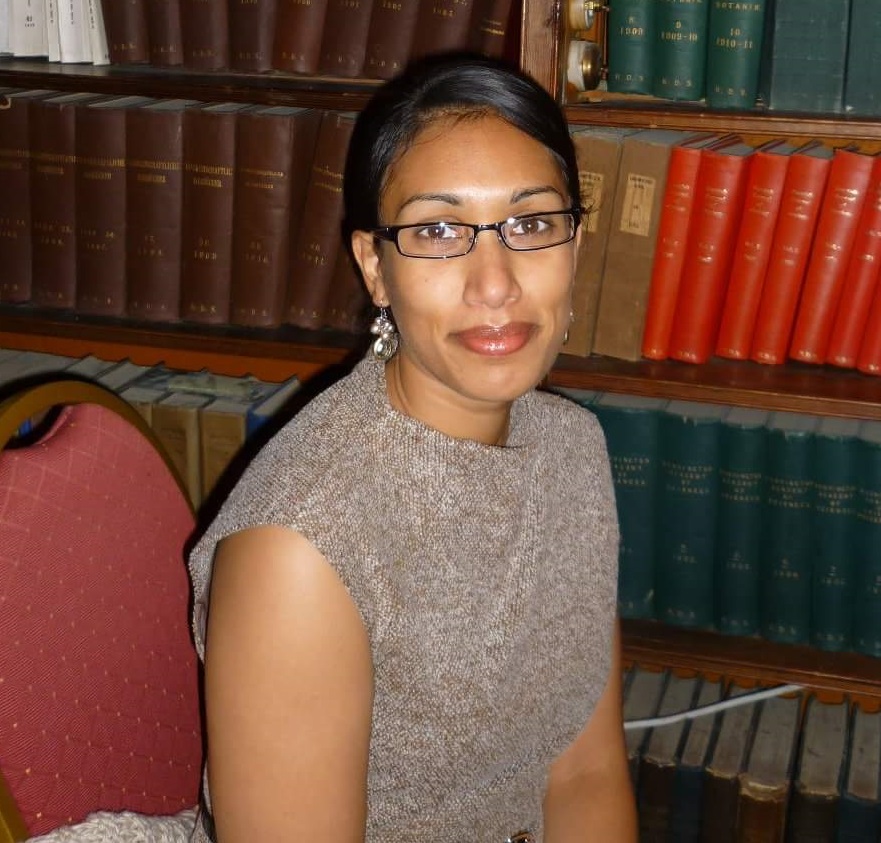 Danusia Hubah is a Foreign Affairs Officer and currently Director of the Office of Security and Human Rights at the Department of State. She was previously Deputy Director of the Office of Iranian Affairs and Director for Iran policy at the National Security Council. She has extensive interagency experience from the policy, diplomatic, and intelligence perspectives on issues related to the Middle East, particularly Iran, Iraq, and the Gulf region. Danusia has served domestically as a policy officer and overseas as a diplomat in U.S. embassies and consulates in Iraq, Afghanistan, and the United Arab Emirates. Prior to that, Danusia worked as an intelligence analyst focusing on Iran. She has an M.A. in Security Studies from Georgetown University, and a B.A. in Political Science/International Relations from the University of California, San Diego.
Danusia Hubah is a Foreign Affairs Officer and currently Director of the Office of Security and Human Rights at the Department of State. She was previously Deputy Director of the Office of Iranian Affairs and Director for Iran policy at the National Security Council. She has extensive interagency experience from the policy, diplomatic, and intelligence perspectives on issues related to the Middle East, particularly Iran, Iraq, and the Gulf region. Danusia has served domestically as a policy officer and overseas as a diplomat in U.S. embassies and consulates in Iraq, Afghanistan, and the United Arab Emirates. Prior to that, Danusia worked as an intelligence analyst focusing on Iran. She has an M.A. in Security Studies from Georgetown University, and a B.A. in Political Science/International Relations from the University of California, San Diego.
Global Health Challenges and Water Security (FGSM 390/HNUH398T)
Wednesday, 3:00p.m. to 6:00 p.m.
Course Description:
This course will examine water challenges and health threats, the major actors as well as mechanisms and initiatives involved in responding, and the factors that governments need to consider as they develop global water and health strategies. Water scarcity, poor water quality and inadequate sanitation negatively impact food security, health, and livelihood for families across the world. Water and sanitation related diseases remain among the major causes of death in children under five. The inter-connectedness between water and health, energy, food security, ecosystems, and climate change makes water a key foundation for achieving country-level sustainable development goals.
Infectious disease outbreaks and other global health emergencies also pose threats not only to human health but to broader social, economic and political goals. The goal of building capacities to prevent, detect, and respond to a range of infectious disease outbreaks has emerged as a major global objective. The speed with which disease travels in today’s inter-connected world and the rapidity with which health care capabilities can be overwhelmed often require coordinated response efforts by multiple actors to combat such outbreaks. The course will also feature guest lecturers from Washington’s national and international policymaking, think tank, and NGO communities.
Instructor Information:
 Dr. Jonathan Margolis, a career member of the Senior Executive Service, serves as the Deputy Assistant Secretary for Science, Space and Health in the Department of State’s Bureau of Oceans and International Environmental and Scientific Affairs. In this position, he is responsible for policies and programs in the areas of International Science & Technology, Space, and International Health and Biodefense. From 2007-2011, Dr. Margolis served as Deputy Assistant Secretary for Global Communications in the Bureau of International Information Programs. Dr. Margolis oversaw the Bureau’s internet, video and print products, including social media. From 2006-2007, Dr. Margolis served as the Senior Coordinator for Global and Functional Issues in the Office of the Director of Foreign Assistance, where he oversaw reform efforts to ensure effective use of foreign assistance resources. From 1997-2006, Dr. Margolis served as the Department's Special Representative for Sustainable Development and as the Director of the Office of Policy Coordination and Initiatives in the Bureau of Oceans and International Environmental and Scientific Affairs. As Special Representative, he headed the U.S. Delegation to the UN Commission on Sustainable Development. Dr. Margolis joined the State Department in 1991 as a American Association for Advancement of Science Diplomacy Fellow and was integrally involved in environment, water, and economic issues and programs, as part of the multilateral track of the Middle East peace process through 1996. He has also served as an Adjunct Professor at American University and the Foreign Service Institute, where he conducted courses on environmental policy, negotiations, and international organizations. Dr. Margolis has a Ph.D. from Harvard University in psychology, focusing on negotiation and conflict resolution. He holds a Master's Degree from the Fletcher School of International Law and Diplomacy. His undergraduate degree is in Fine Arts from Harvard College.
Dr. Jonathan Margolis, a career member of the Senior Executive Service, serves as the Deputy Assistant Secretary for Science, Space and Health in the Department of State’s Bureau of Oceans and International Environmental and Scientific Affairs. In this position, he is responsible for policies and programs in the areas of International Science & Technology, Space, and International Health and Biodefense. From 2007-2011, Dr. Margolis served as Deputy Assistant Secretary for Global Communications in the Bureau of International Information Programs. Dr. Margolis oversaw the Bureau’s internet, video and print products, including social media. From 2006-2007, Dr. Margolis served as the Senior Coordinator for Global and Functional Issues in the Office of the Director of Foreign Assistance, where he oversaw reform efforts to ensure effective use of foreign assistance resources. From 1997-2006, Dr. Margolis served as the Department's Special Representative for Sustainable Development and as the Director of the Office of Policy Coordination and Initiatives in the Bureau of Oceans and International Environmental and Scientific Affairs. As Special Representative, he headed the U.S. Delegation to the UN Commission on Sustainable Development. Dr. Margolis joined the State Department in 1991 as a American Association for Advancement of Science Diplomacy Fellow and was integrally involved in environment, water, and economic issues and programs, as part of the multilateral track of the Middle East peace process through 1996. He has also served as an Adjunct Professor at American University and the Foreign Service Institute, where he conducted courses on environmental policy, negotiations, and international organizations. Dr. Margolis has a Ph.D. from Harvard University in psychology, focusing on negotiation and conflict resolution. He holds a Master's Degree from the Fletcher School of International Law and Diplomacy. His undergraduate degree is in Fine Arts from Harvard College.
 Julien Katchinoff is currently serving as Water Team Lead in the Office of Conservation and Water at the U.S. Department of State. Previously, Julien served as the Department's primary action officer in implementing the Boundary Waters Treaty of 1909 between the United States and Canada, including oversight of the U.S. section of the binational International Joint Commission (IJC) as Transboundary Water Specialist and Deputy Columbia River Treaty Negotiator in the Office of Canadian Affairs. Over a decade at the Department, Julien also developed and implemented U.S. foreign policies on drinking water and sanitation, water resources management, and transboundary water issues, with a specific focus on South East Asia. Prior to Federal service, Julien worked as an Environmental Scientist with Montgomery Watson Harza in Denver, Colorado, and a research intern with the Environmental Change and Security Program at the Woodrow Wilson International Center for Scholars in Washington D.C. Julien earned his M.A. in Global Environmental Policy from American University’s School of International Service in 2009, and his B.A. in Geography and International Affairs from the University of Colorado in 2006. Julien served as a Peace Corps Volunteer in the Republic of Georgia (2007-2008) and speaks French and an ever-diminishing amount of Georgian.
Julien Katchinoff is currently serving as Water Team Lead in the Office of Conservation and Water at the U.S. Department of State. Previously, Julien served as the Department's primary action officer in implementing the Boundary Waters Treaty of 1909 between the United States and Canada, including oversight of the U.S. section of the binational International Joint Commission (IJC) as Transboundary Water Specialist and Deputy Columbia River Treaty Negotiator in the Office of Canadian Affairs. Over a decade at the Department, Julien also developed and implemented U.S. foreign policies on drinking water and sanitation, water resources management, and transboundary water issues, with a specific focus on South East Asia. Prior to Federal service, Julien worked as an Environmental Scientist with Montgomery Watson Harza in Denver, Colorado, and a research intern with the Environmental Change and Security Program at the Woodrow Wilson International Center for Scholars in Washington D.C. Julien earned his M.A. in Global Environmental Policy from American University’s School of International Service in 2009, and his B.A. in Geography and International Affairs from the University of Colorado in 2006. Julien served as a Peace Corps Volunteer in the Republic of Georgia (2007-2008) and speaks French and an ever-diminishing amount of Georgian.
Economic Diplomacy: Challenges and Opportunities (FGSM365/HNUH369T)
Monday, 6:00 p.m. to 9:00p.m.
Course Description:
This course will examine political, social, and environmental aspects of the global economy in the context of great power competition and rapid technological change. How do goods and services, money, and ideas flow around the world? What roles do governments, corporations, civil society organizations and individuals play in this complex and often invisible dynamic? The course will look at specific issues such as the impact of the pandemic; implications of natural resource depletion; changing international energy systems and regional/national responses; emerging and strategic technologies. Students will analyze historical trends and contemporary conditions as factors in the development and implementation of foreign policy, with a special focus on East and South Asia. The course will convey an understanding of the interagency policy formulation process and will impart skills (analytical, written and verbal communication) required to engage in the global economic space.
Instructor Information:
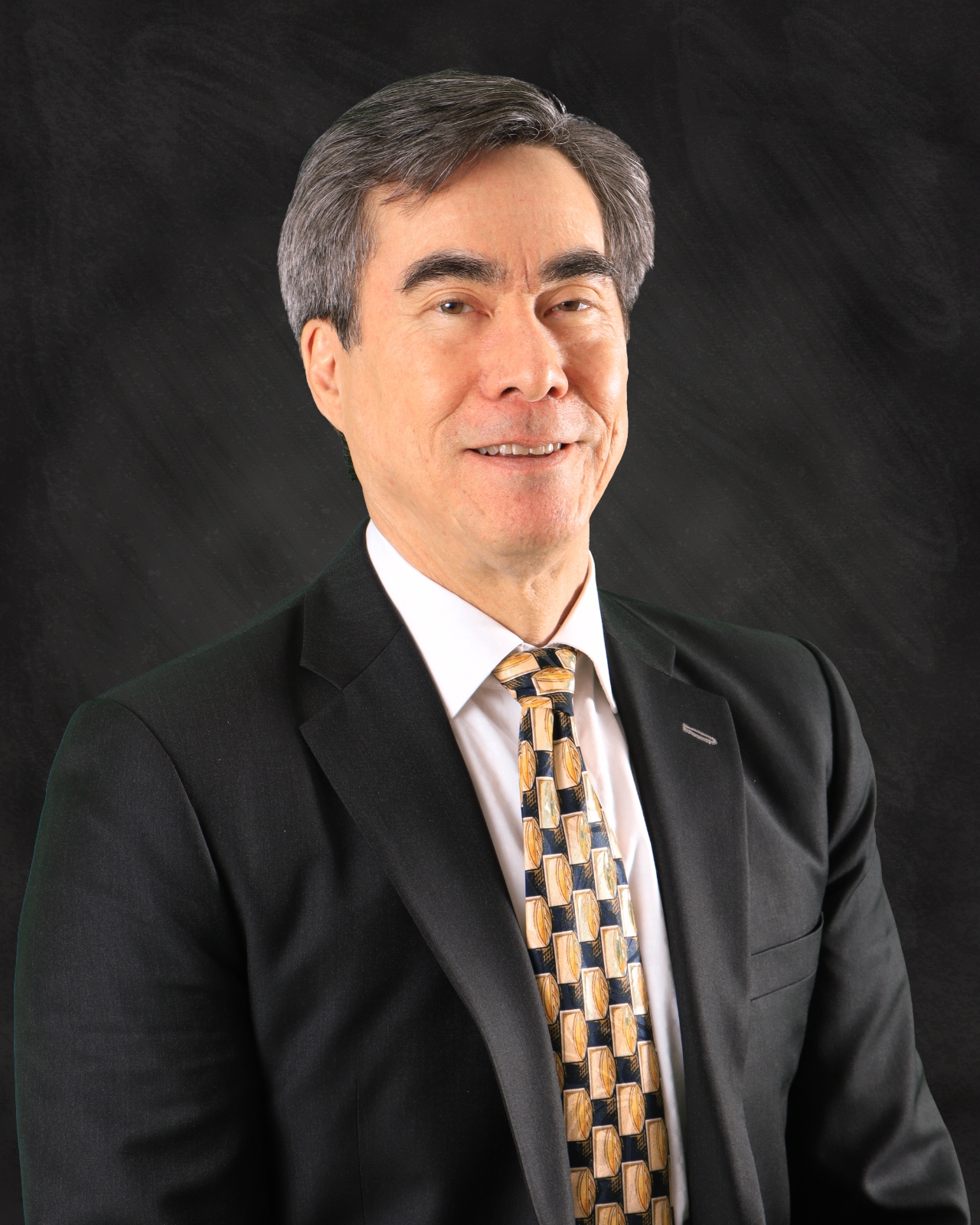 As a Foreign Service Officer, Andrew Nissen spent more than 20 years helping to shape major United States foreign policy initiatives in East and South Asia. He most recently served as Indo-Pacific Strategy Coordinator for the State Department’s Bureau of South and Central Asian affairs. He has advanced U.S. national interests in a wide range of economic sectors through his domestic and overseas assignments, which include posts in India, Indonesia, Taiwan and Hong Kong. Mr. Nissen holds a Master’s Degree in environmental economics from the American University, and a Bachelor’s Degree in international relations from Georgetown University. He is a graduate of the State Department’s advanced economic studies program.
As a Foreign Service Officer, Andrew Nissen spent more than 20 years helping to shape major United States foreign policy initiatives in East and South Asia. He most recently served as Indo-Pacific Strategy Coordinator for the State Department’s Bureau of South and Central Asian affairs. He has advanced U.S. national interests in a wide range of economic sectors through his domestic and overseas assignments, which include posts in India, Indonesia, Taiwan and Hong Kong. Mr. Nissen holds a Master’s Degree in environmental economics from the American University, and a Bachelor’s Degree in international relations from Georgetown University. He is a graduate of the State Department’s advanced economic studies program.
Strategic Thinking, AI, & Innovation Power (FGSM375/HNUH379T)
Tuesdays, 6:00 p.m.to 9:00 p.m.
Course Description:This course will prepare students for careers in technology innovation in three segments. First, students will ground themselves in the basics of strategic theory and how to make a strategy at any level of analysis. Second, from a practitioner's perspective, students will explore the U.S. innovation ecosystem in the context of world affairs across industry, academia, government, and venture. By doing so they can also examine potential career paths in building technology power to improve international security. Third, students will gain practical experience from studying cases in innovation power and build their own tech strategy as a capstone experience. Through all three phases of the class, artificial intelligence will be used as the base case and the most important general purpose technology of our day thus gaining an appreciation for AI itself on one hand, and how it is but one example of how technology can impact the destiny of nations on the other.
 Dr. Paul “PJ” Maykish is the Senior Advisor for Technology and Economy for the Special Competitive Studies Project. Before SCSP, Dr. Maykish was the Director for International Technology Competition on the National Security Council. Operationally, he spent 24 years as a Ranger-qualified Air Force officer including two-years of commanding the Combined Air Operations Center (CAOC) in the Middle East from 2017-2019. In between operational assignments, his strategy experience includes two years on the National Security Commission on Artificial Intelligence and two years as the Air Force Strategy Advisor for the Office of the Secretary of Defense for Policy (OSD-P) where he designed “Third Offset” concepts and deterrence assessment frameworks. Dr. Maykish received a B.S. in International Resource Management from the University of Montana; a Master of Environmental Management in Community Development from Yale University; a Master of Philosophy in Military Strategy from the School of Advanced Air and Spacepower Studies (SAASS); Master of Arts in National Security Strategy from National War College (with honors); and a Doctor of Philosophy in Military Strategy from SAASS.
Dr. Paul “PJ” Maykish is the Senior Advisor for Technology and Economy for the Special Competitive Studies Project. Before SCSP, Dr. Maykish was the Director for International Technology Competition on the National Security Council. Operationally, he spent 24 years as a Ranger-qualified Air Force officer including two-years of commanding the Combined Air Operations Center (CAOC) in the Middle East from 2017-2019. In between operational assignments, his strategy experience includes two years on the National Security Commission on Artificial Intelligence and two years as the Air Force Strategy Advisor for the Office of the Secretary of Defense for Policy (OSD-P) where he designed “Third Offset” concepts and deterrence assessment frameworks. Dr. Maykish received a B.S. in International Resource Management from the University of Montana; a Master of Environmental Management in Community Development from Yale University; a Master of Philosophy in Military Strategy from the School of Advanced Air and Spacepower Studies (SAASS); Master of Arts in National Security Strategy from National War College (with honors); and a Doctor of Philosophy in Military Strategy from SAASS.
